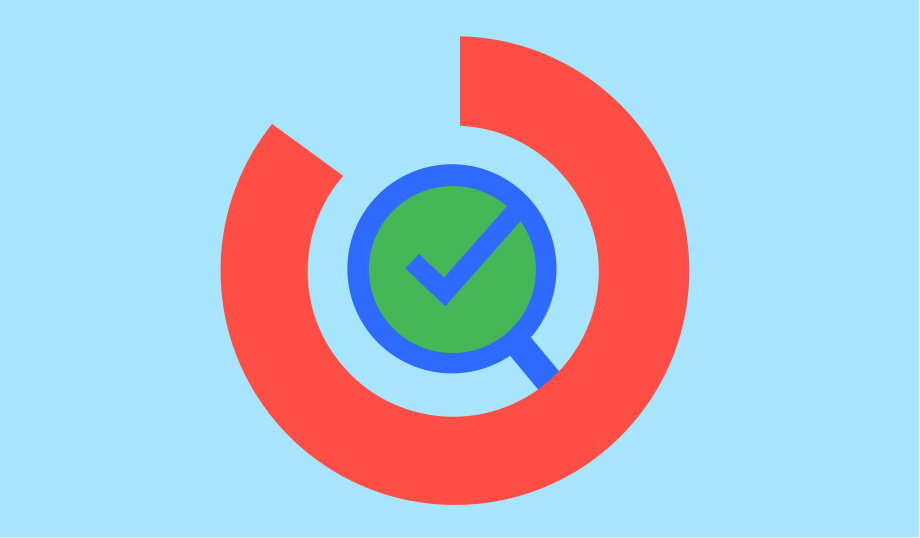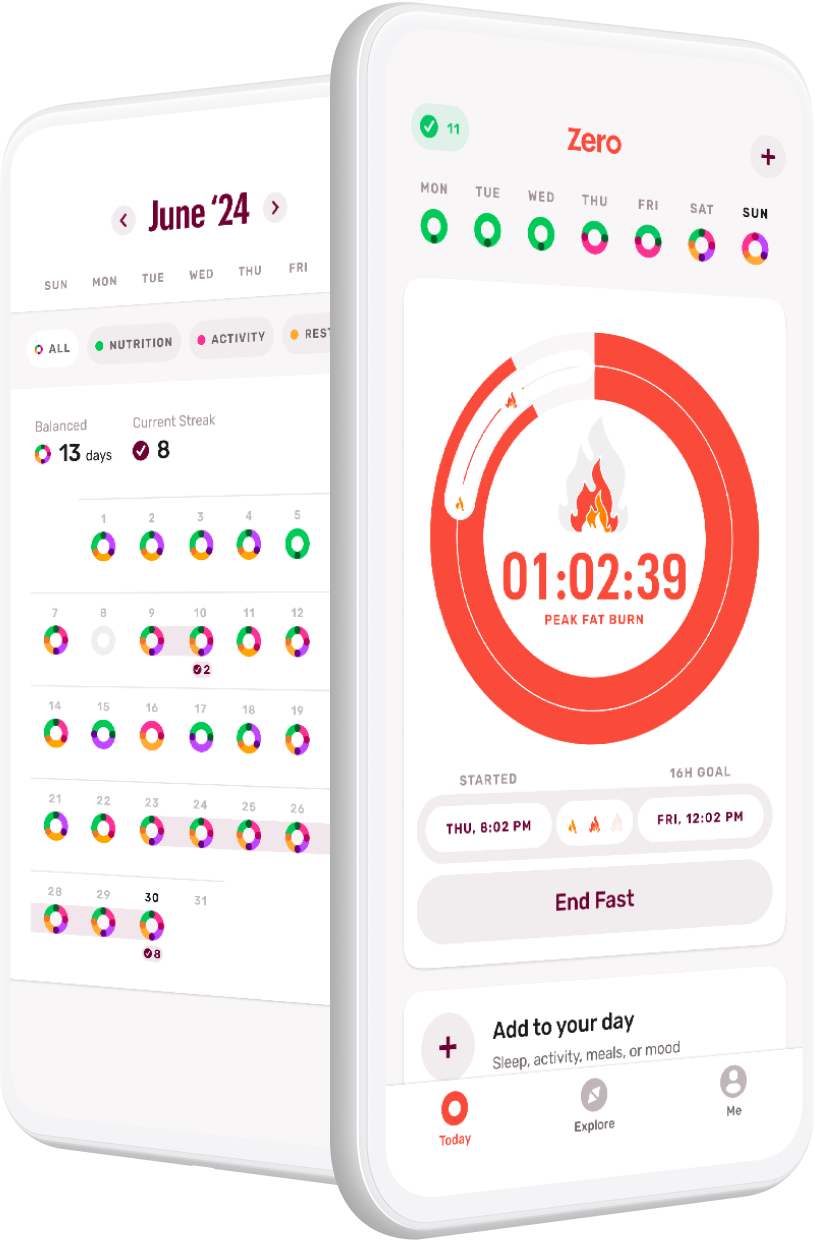Written and medically reviewed by Nicole Grant, RD
Intermittent fasting (IF) is an eating pattern that involves alternating periods of fasting and eating. It has demonstrated a wide range of health benefits, including weight loss, improved metabolic health, and increased longevity.
While intermittent fasting can be effective for people of all ages and genders, it may be particularly beneficial for women over 50. As women age and pass through menopause, they may find that traditional ways of managing weight through lifestyle choices become more difficult. This article will explore the benefits of IF for peri and postmenopausal women as an alternative way to reach your health goals and offer practical tips for getting started.

What Is Intermittent Fasting?
Intermittent fasting is an eating pattern that involves alternating periods of fasting and eating in a 24-hour window. There are several different types of intermittent fasting, including:
- 16:8. This involves fasting for 16 hours and eating during an 8-hour window each day.
- 5:2. Participants eat normally for 5 days of the week and restrict calorie intake to 500–600 calories for 2 days of the week.
- Eat-stop-eat. This involves fasting for 24 hours once or twice a week.
- Alternate-day fasting. This involves participating in a 24-hour fast every other day.
Intermittent fasting has been shown to have several health benefits, including:
- Weight loss. IF can help to reduce calorie intake, leading to weight loss.
- Improved metabolic health. Intermittent fasting has been shown to improve insulin sensitivity, reduce inflammation, and improve other markers of metabolic health.
- Increased longevity. IF has been shown to increase lifespan in animals and may have similar benefits in humans.
Overall, intermittent fasting can be an effective way to improve your health and achieve your wellness goals.
Does Intermittent Fasting Work for Women Over 50?
Menopause can be a challenging transition in a woman’s life. Her physiology is changing, her home life may be different with kids leaving the house, and, oftentimes, age 50 is when women near the top of their careers. Women may also be noticing that, at this time in their life, previous efforts around health and weight management may not be having the same impact they once had. All in all, now is likely an ideal time to find a simplified approach to health that really works — fortunately, intermittent fasting can be part of the solution.
Intermittent fasting is a simplified approach that just about anyone can try. It’s less complicated than dieting and provides a less restrictive approach that allows for any of your favorite foods within your eating window — two pros that can increase your chances of long-term success.
One recent study focused on intermittent-fasting protocols for women over 60. The results not only showed that time restricted eating can be an effective strategy to lose weight, but also demonstrated a high compliance rate, suggesting that IF can be a better long-term solution than calorie restriction alone.
Is Intermittent Fasting Safe for Females Over 50?
Women over 50 may wonder whether intermittent fasting is safe and effective. The good news is that intermittent fasting can be safe for most women over 50, as long as they follow certain precautions.
Some of the potential risks associated with intermittent fasting include:
- Lower blood sugar. Fasting can lead to low blood sugar, which can be dangerous for some people, especially those with diabetes or other medical conditions.
- Dehydration. Fasting individuals may become dehydrated if they are not careful to drink plenty of water during their fasts.
- Nutrient deficiencies. If you’re not eating a balanced diet during your eating windows, you may be at risk of nutrient deficiencies.
To avoid these risks, women over 50 should follow these guidelines when practicing intermittent fasting:
- Drink plenty of water. Staying hydrated is important for overall health, and it’s especially important when fasting. Hydration needs vary from person to person, but typically a good starting point is to aim for at least 8 cups of water a day. For prolonged fasts, additional electrolytes, such as sodium and magnesium, may be needed as well.
- Eat a balanced diet. Make sure you’re getting enough protein, fiber, and other nutrients during your eating windows. Postmenopausal women are at higher risk for lean muscle loss, decreased bone density, insulin resistance and heart disease. So, ensure you are eating enough protein within your eating window and focus on foods that provide vitamin D, calcium, and vitamin K2 for bone health. Some examples include full-fat dairy, fermented foods, fish, beans, and lentils. Minimizing added sugars and processed carbohydrates can also help reduce your risk of blood-sugar issues and high cholesterol.
- Start slow. If you’re new to intermittent fasting, start with a shorter fasting period and gradually increase it over time. This will help your body adjust to the new eating pattern.
As always, it is important to consult your health care practitioner to assess your personal ability to practice fasting, especially if you are on medications and/or are being treated for a medical condition(s).
How Intermittent Fasting Affects Female Hormones Over 50
Hormonal changes are a natural part of the aging process for women, and they can have a significant impact on overall health and well-being. As women age, their levels of estrogen and progesterone decline, which can lead to a variety of health issues, including bone loss, weight gain, and decreased energy levels. Some women may be avoiding intermittent fasting due to assumptions that it may negatively impact their hormones even further, however, current research shows this may not be much of a concern.
Although research is limited on the impact intermittent fasting has on sex hormones in postmenopausal women, one study showed that 8 weeks of intermittent fasting had minimal impact on hormones. Estradiol, estrone, progesterone, and sex hormone-binding globulin (SHBG) remained unchanged at the end of the trial, but DHEA levels (which are involved in producing sex hormones) did decrease significantly. Although DHEA levels changed, they remained within normal limits.
This study showed that at, least in the short-term, intermittent fasting was an effective way to reduce weight without any major negative impact on hormone levels. However, with the minor decrease in DHEA and the general lack of studies on the topic, it is always best to consult with your healthcare practitioner.
Benefits of Intermittent Fasting for Women Over 50
Women may choose to fast for a variety of reasons such as weight management, improved body composition, and longevity goals, many of which become more important as you age. As women progress through menopause, sex hormones such as progesterone, estrogen, and testosterone shift, leading to an increase in visceral fat as well as decreased energy expenditure. In addition, common shifts in metabolic function are seen around menopause such as dyslipidemia, impaired glucose tolerance, insulin resistance, hyperinsulinemia, and type 2 diabetes — all of which can lead to weight gain and can also increase instances of chronic diseases.
Although science on menopausal individuals and IF is still emerging, there are a handful of studies that show promising effects for women over 50. Improvements in body fat, weight loss, and metabolic health, such as lower fasting insulin levels, are among the positive outcomes for menopausal individuals who adopt fasting.
Weight Loss
Intermittent fasting has been shown to be an effective way to lose weight and reduce body fat. A study looking at intermittent fasting in women over 60 showed that those who followed a 4-to-6 hour eating window were able to lose an average of 4% of their body weight in only 8 weeks.
Metabolic Health
Intermittent fasting can improve metabolic health by reducing insulin resistance, which can help to reduce the risk of type-2 diabetes and other metabolic disorders. This is particularly important for women over 50, who may be at increased risk of these conditions.
Longevity
Intermittent fasting has been shown to increase lifespan up to 80% in small animal models, like rodents. There is some evidence lifespan extension may be possible in humans as well, but there are no conclusive studies to this point. We do find that intermittent fasting can be a powerful tool for improving well-being into old age. This is important for women over 50, who may be concerned about age-related health issues.
Inflammation
Chronic inflammation is a common issue for women over 50, and it can contribute to a variety of health problems. Intermittent fasting has been shown to reduce inflammation in the body, which can help to improve overall health and reduce the risk of chronic disease. Intermittent fasting can increase fat metabolism and ketone production without severe carbohydrate restriction. Ketones have been shown to reduce inflammation throughout the body. Similarly, intermittent fasting may improve the gut microbiome which is increasingly being recognized as a strategy to promote anti-inflammatory microbiota in the gut .
Best Types of Intermittent Fasting for Over-50 Females
12:12 Intermittent Fasting
This involves fasting for 12 hours a day and eating during a 12-hour window. A 12:12 fast is a good option for beginners or those who want a less restrictive approach to fasting. A 12:12 approach allows for a longer eating window, which also means more opportunity to meet nutrition needs such as protein, calcium, and other essential nutrients. Plus, even these shorter daily fasts can have benefits on circadian rhythm, which may support sleep patterns — another common challenge seen in perimenopause.
16:8 or 18:6 Daily Intermittent Fasting
This involves fasting for 16 or 18 hours a day and eating during an 8 or 6-hour window. This is a more restrictive approach compared to a 12-hour fast, however, it can be more effective for weight loss and improving metabolic health. More than two thirds of women are overweight or obese, which increases risk of postmenopausal breast cancer. So, if you fall within the higher BMI categories, adopting a 16:8 or 18:6 approach may not only help you lose weight, but reduce your risk of cancer as well.
The 5:2 Method
Participants eat normally for 5 days a week and consume only 500–600 calories for 2 non-consecutive days a week. This is a good option for those who want a flexible approach to fasting, but still want the weight loss and metabolic benefits.
Alternate-Day Fasting
This involves fasting every other day and eating normally on non-fasting days. This is a more restrictive approach to fasting and may not be suitable for everyone. Although more difficult in its approach, alternate-day fasting has been shown to reduce waist circumference in adults older than 40 and have positive impacts on total cholesterol.
When starting an intermittent fasting plan, it’s important to start slowly and gradually increase the length of your fasting periods over time. This will help your body adjust to the new eating pattern and reduce the risk of side effects.
How to Start Intermittent Fasting for Women in Their 50s
Start Slow and Gradually Increase Fasting Duration
When starting an intermittent fasting plan, it’s important to start slowly and gradually increase the length of your fasting periods over time. For example, you may start with a 12:12 fasting schedule and gradually increase to a 16:8 schedule over several weeks.
Prioritize Protein
When breaking your fast, it’s important to prioritize protein-rich foods to help maintain muscle mass. Good protein sources include lean meats, poultry, fish, eggs, and dairy products. Aim for 1 gram of protein per pound of ideal body weight to help ensure you are getting enough for muscle growth and maintenance.
Hydrate and Get Enough Electrolytes
When fasting, it’s important to stay hydrated and replenish your electrolytes. Drink plenty of water and consider adding a pinch of salt to your water or consuming an electrolyte supplement.
Choose the Right Foods
When eating during your feeding window, it’s important to choose nutrient-dense foods that will help fuel your body and keep you feeling full. Focus on whole foods such as fruits, vegetables, whole grains, proteins, dairy, nuts, seeds, and healthy fats. Minimize processed foods and added sugars, which can negatively impact insulin levels, inflammation, and metabolic health.
Plan Meals Ahead of Time
Planning your meals ahead of time can help ensure that you’re consuming a balanced diet and getting all the nutrients your body needs. Consider meal prepping or using a meal-delivery service to help make meal planning easier.
Listen to Your Body
When trying intermittent fasting, it’s important to listen to your body and adjust your plan as needed. If you experience side effects such as dizziness or headaches, consider adjusting your fasting schedule or consulting with a healthcare provider.
Mistakes to Avoid
Neglecting Proper Nutrition
When fasting, it’s important to make sure you’re still consuming a balanced diet that provides all the nutrients your body needs. Avoid relying on processed foods or consuming too many calories during your feeding window.
Not Eating Enough During Eating Windows
It’s important to make sure you’re consuming enough calories during your feeding window to fuel your body and prevent muscle loss. Make sure you’re eating enough nutrient-dense foods and don’t restrict your calories too much. Micronutrients are important for optimal health, reducing the risk of certain diseases such as osteoporosis and heart disease, whereas protein intake is important for maintaining muscle mass as you age.
Over-Exercising
While exercise is important for overall health, over-exercising while fasting can be dangerous. Make sure to listen to your body and avoid overexerting yourself physically during your fasting period.
Conclusion
Intermittent fasting can be an effective way for women over 50 to improve their health and well-being. By reducing inflammation, improving metabolic health, and balancing hormones, intermittent fasting can help women in or approaching menopause to reduce their risk of chronic disease and improve their quality of life.
When trying intermittent fasting, it’s important to prepare for a successful fast by starting slowly and gradually increasing the length of your fasting periods over time. Prioritizing protein, proper hydration, and choosing nutrient-dense foods can help ensure that your body gets the nutrients it needs during your fasting period.
By avoiding common mistakes such as neglecting proper nutrition and over-exercising, women over 50 can reap the benefits of intermittent fasting and improve their overall health and well-being.
Ready to start using Zero? Take the quiz or download the app today.
- Why Should We Care About Hormones? Fasting and Hormone Health - April 1, 2024
- Should You Consider a Continuous Glucose Monitor (CGM) If You’re Non-Diabetic? - March 18, 2024
- All About Insulin and Its Effect on Your Weight-Loss Journey - February 19, 2024






